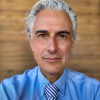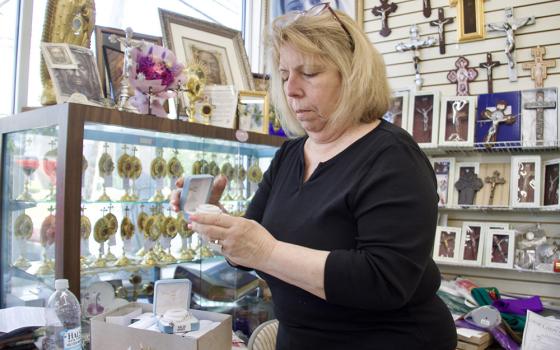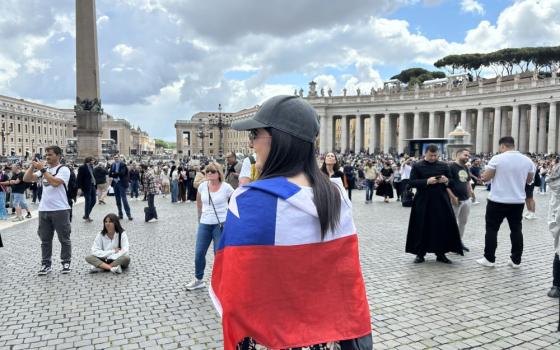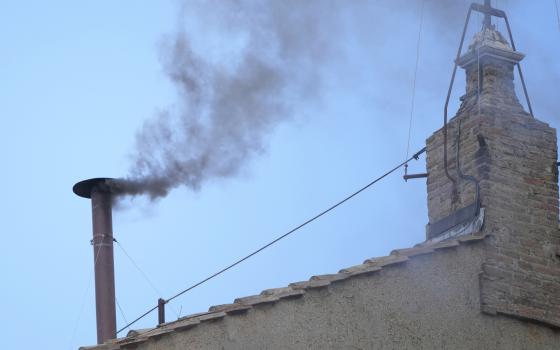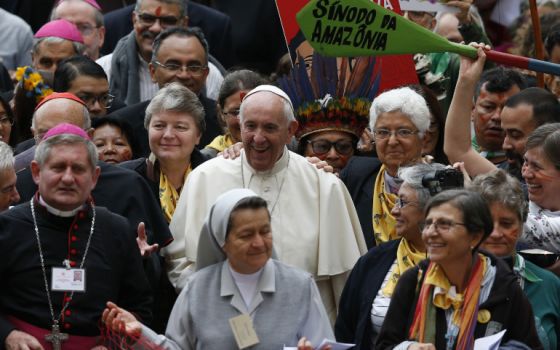Cardinals concelebrate Mass with Cardinal Víctor Manuel Fernández on the sixth day of the "novendiali," nine days of mourning for Pope Francis, at the Altar of the Confession in St. Peter's Basilica at the Vatican May 1, 2025. The conclave to elect a new pope begins May 7. Ten cardinals from the United States are eligible to vote. (CNS/Lola Gomez)
Why, in 12 years and with 68 countries visited, did Pope Francis never return to his home country of Argentina, where his family resides? It's an oft-debated question, but I believe the answer is simple: Jorge Mario Bergoglio never returned home after Rome the 2013 conclave because he didn't want his papacy to be used for political purposes. He avoided providing anyone with a photo opportunity that could polarize an already divided nation.
Although Francis expressed his Argentine identity in benign ways — a passion for tango and World Cup matches, sipping maté at the end of papal audiences and supporting education through Scholas Occurrentes — he was well aware of an unwritten rule in Vatican documents: The nationality of the pope is never a trivial matter.
And so when the question of a pope from the United States is raised, there is much to consider. While there are prominent men in the U.S. delegation participating in the upcoming conclave — Cardinals Joseph Tobin, Robert Prevost, Blase Cupich, Robert McElroy and Timothy Dolan — seeing an American dressed in white emerging from the Sistine Chapel would be against all odds.
Of the 133 cardinal electors, 10 are from the United States.
First, is there really a U.S. delegation, a team that would wear the same jersey? Do these players feel like teammates? In few other parts of the world is the word "schism" evoked so often as in the United States: The U.S. church is very divided on numerous issues — social ones, primarily, but also liturgical — and has never failed to show it publicly. The result is an image of two major currents. Other than the generally common approach on migrants and refugees, the portrait is quite similar to that of the current U.S. civil society, divided between Donald Trump supporters and liberals, able to unite only on Thanksgiving and the Fourth of July.
How many non-Americans voting in the conclave would be willing to put a U.S. cardinal in the papacy at this historical moment? If he were a conservative candidate, it would run the risk of appearing to legitimize — or even empower — Donald Trump. If he were a progressive, it might appear as a response to Trump: an attempt to involve the entire U.S. Catholic Church's internal struggles. Even if he were a mediating figure, he would still put the United States in the global spotlight, only drawing more attention to the disruption of his international political and economic agenda.
The media output from the White House certainly doesn't boost the chances of an U.S. candidate, but it's doubtful that Donald Trump would lose sleep over not having a fellow countryman as pope. Indeed, for the U.S. president, having a fellow American elected pope would pose a political problem — and a blow to his ego.
Tensions have already erupted around issues such as migration. The Trump administration's massive funding cuts, the reaction from the U.S. Conference of Catholic Bishops and subsequently the intervention by JD Vance compelled even New York's Cardinal Dolan — who attended both Trump inaugurations and was deemed an excellent papal candidate by Trump himself — to respond. What once seemed like an unbreakable alliance between Trumpism and a portion of the U.S. Catholic hierarchy has begun to falter. What would have happened if, at that moment, the pope had been an American? Would the current administration have cut funds in the same way, or would it have sought mediation with the Vatican first?
But perhaps the most challenging aspect for Trump would be the psychological one. The leader known for his commanding presence — who ensured the White House media pool followed him throughout Pope Francis' funeral, capturing him prominently from the left colonnade of St. Peter's Square — is not used to sharing center stage with anyone. If the pope were from the United States, not only would he have to share it, but he might also have to assume the supporting role, a role he has never played in his life. It's no coincidence, then, that when asked who would make an excellent papal candidate, he named himself as his own "number one choice."
Advertisement
